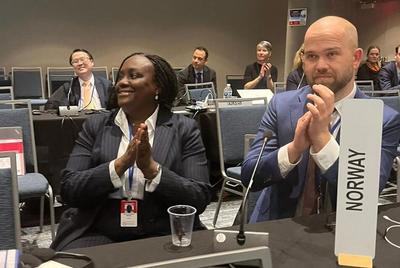Book Launch: Corruption, grabbing and development: Real world challenges
Grabbing is a major obstacle to development. It takes different forms in different countries, and standardised anti-corruption efforts fail. Experienced practitioners and researchers present corrupt practices from around the world challenging anti-corruption efforts and explaining why they have failed.
PROGRAMME
Facilitator: Ingvild Hestad, Communication Director, CMI
13:00 Real world challenges. Presentation of the book
by Tina Søreide, Co-editor and post doc at the University of Bergen
13:20 Comments and real world challenges from a political perspective
by State Secretary Hans Brattskar
13:35 Comments by Guro Slettemark, Secretary General, Transparency International Norway
13:45 Discussion
14:00 Corruption and collusion in construction
Jill Wells, Senior Policy and Research Advisor, Engineers against Poverty
14:15 Grabbing Land in Malawi
Blessings Chinsinga, Lecturer, Malawi Academic Freedom
14:30 Grabbing in the Education Sector
Muriel Poisson, Programme Specialist Equity, Access and Quality at the International Institute for Educational Planning
14:45 Questions and discussion
15:00 End
About the book:
All societies develop their own norms about what is fair behaviour and what is not. Violations of these norms can collectively be described as forms of ‘grabbing’. Attempts to benefit unduly at the expense of the state, efforts to limit taxes and regulatory costs, and attempts to influence political choices are forms of grabbing. This unique volume addresses how grabbing hinders development at the sector level and in state administration. The contributors – researchers and practitioners who work on the ground in developing countries – present empirical facts on the mechanisms at play and describe different types of unethical practices.
The book's sixteen case studies explore why certain practices constitute forms of grabbing, what implications they have for the achievement of development goals, and how policy options should take the characteristics of grabbing into account. A broad range of sectors are covered, including extractive industries, construction, ports, utilities, finance, health, pharmaceuticals and education. The authors discuss political checks and balances, democratic elections and the law enforcement system, as well as the government’s role in the allocation of land and as a development partner in other countries




